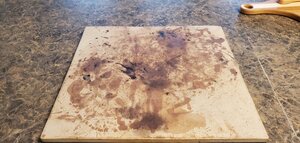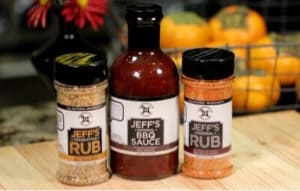- Jun 9, 2021
- 8
- 3
Made some ribs yesterday. Usually I put a round flat baking sheet and a pizza stone (both individually wrapped in aluminium foil) between the fire and the meat on my kamado style cooker. Yesterday I made a mistake in the sequence and the pizza stone was on top sitting in the baking sheet. The ribs dripped a lot of fat and my pizza stone ended up "swimming" in that fat held by the baking sheet.
Question:
How do I clean that pizza stone?
I've tried baking soda and water.
I tried putting it in the oven at 250 to make it sweat.
I know it won't be brand new when I am done, but I want to at least get rid of the smell (it doesn't smell good) and use it later for making pizza.
Thanks
Question:
How do I clean that pizza stone?
I've tried baking soda and water.
I tried putting it in the oven at 250 to make it sweat.
I know it won't be brand new when I am done, but I want to at least get rid of the smell (it doesn't smell good) and use it later for making pizza.
Thanks





